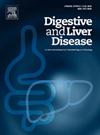Detection of the complete genome of Human Pegivirus in a pediatric patient with acute hepatitis of unknown etiology through shotgun metagenomics: a case report
IF 3.8
3区 医学
Q1 GASTROENTEROLOGY & HEPATOLOGY
引用次数: 0
Abstract
Human Pegivirus (HPgV) is a positive-sense single strand RNA virus belonging to the Flaviviridae family. Although not conclusively linked to a specific disease, an increasing number of studies are recently reporting as association between this virus and different human pathologies [1-4]. Here we describe the presence of HPgV, detected by metagenomic analysis, in a 6-months old female with severe acute hepatitis of unknown etiology. Serological and molecular biology tests for hepatotropic viruses, including Hepatitis B virus (HBV), Hepatitis A virus (HAV), Hepatitis C virus (HCV), Hepatitis E virus (HEV), Epstein-Barr Virus (EBV), Cytomegalovirus (CMV), Herpes Simplex Virus (HSV), enterovirus and adenovirus, were tested negative. Metagenomic Next Generation Sequencing (mNGS) showed the presence of the complete genome of human HPgV. This represents an important aspect to be taken in consideration and warrants a particular attention.
通过散弹枪宏基因组学检测小儿不明原因急性肝炎患者的人裴吉吉病毒全基因组:1例报告
人佩吉病毒(Human Pegivirus, HPgV)是黄病毒科的一种正义单链RNA病毒。虽然与特定疾病没有决定性联系,但最近越来越多的研究报告表明该病毒与不同的人类病理之间存在关联[1-4]。在这里,我们描述的存在hpv,检测宏基因组分析,在6个月大的女性严重急性肝炎不明病因。乙型肝炎病毒(HBV)、甲型肝炎病毒(HAV)、丙型肝炎病毒(HCV)、戊型肝炎病毒(HEV)、eb病毒(EBV)、巨细胞病毒(CMV)、单纯疱疹病毒(HSV)、肠病毒和腺病毒等嗜肝病毒的血清学和分子生物学检测均为阴性。metagenomics Next Generation Sequencing (mNGS)显示了人hpv全基因组的存在。这是需要考虑的一个重要方面,值得特别注意。
本文章由计算机程序翻译,如有差异,请以英文原文为准。
求助全文
约1分钟内获得全文
求助全文
来源期刊

Digestive and Liver Disease
医学-胃肠肝病学
CiteScore
6.10
自引率
2.20%
发文量
632
审稿时长
19 days
期刊介绍:
Digestive and Liver Disease is an international journal of Gastroenterology and Hepatology. It is the official journal of Italian Association for the Study of the Liver (AISF); Italian Association for the Study of the Pancreas (AISP); Italian Association for Digestive Endoscopy (SIED); Italian Association for Hospital Gastroenterologists and Digestive Endoscopists (AIGO); Italian Society of Gastroenterology (SIGE); Italian Society of Pediatric Gastroenterology and Hepatology (SIGENP) and Italian Group for the Study of Inflammatory Bowel Disease (IG-IBD).
Digestive and Liver Disease publishes papers on basic and clinical research in the field of gastroenterology and hepatology.
Contributions consist of:
Original Papers
Correspondence to the Editor
Editorials, Reviews and Special Articles
Progress Reports
Image of the Month
Congress Proceedings
Symposia and Mini-symposia.
 求助内容:
求助内容: 应助结果提醒方式:
应助结果提醒方式:


